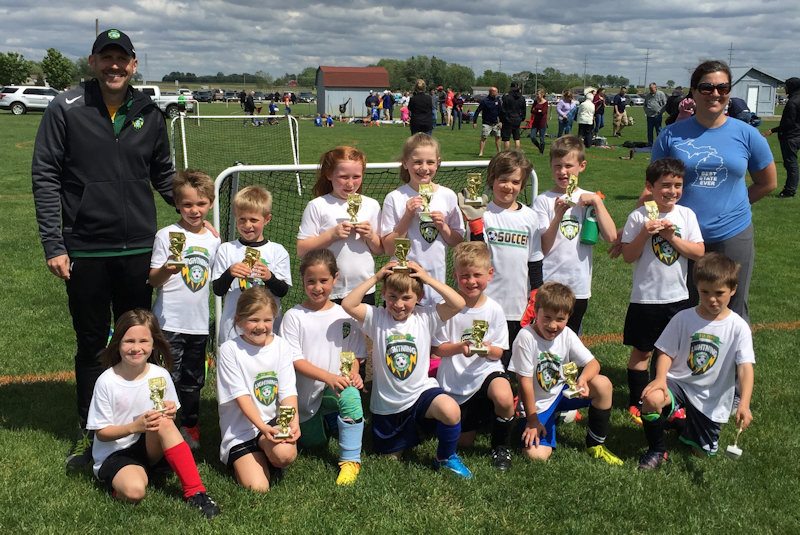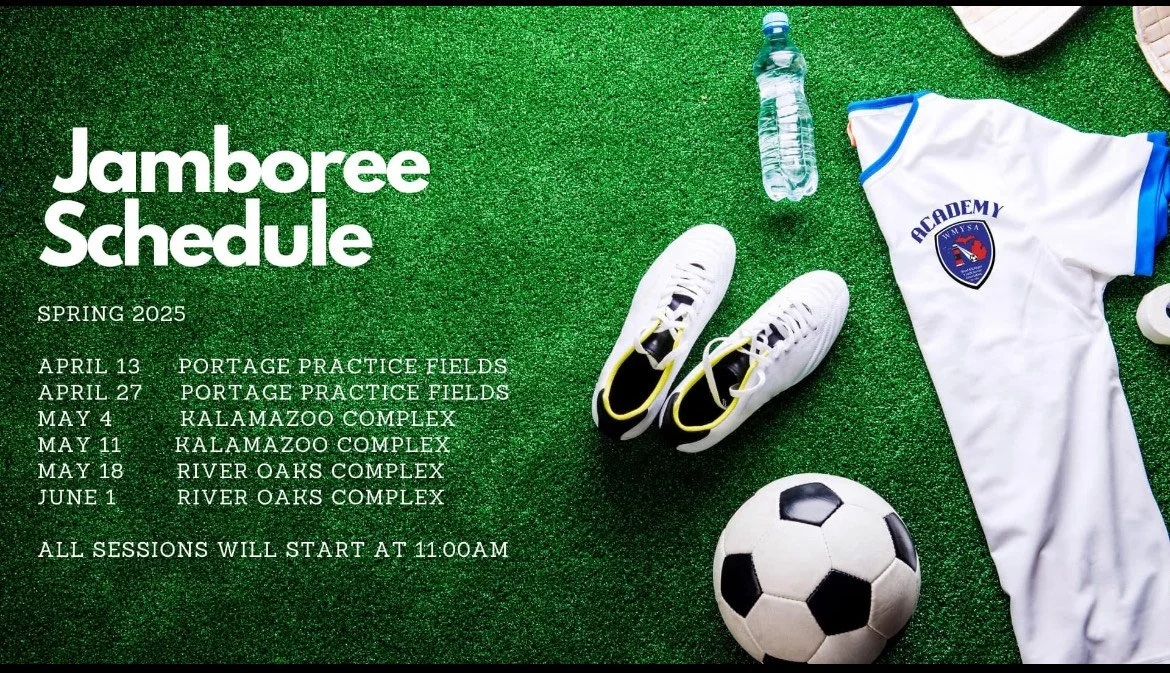Portage SOCCER CLUB
JUNIOR LIGHTNING Academy Program
Academy Only 2018, 2019, and 2020 birth years for the 2025-2026 season
A Philosophy of Long-Term Development and Continuous Growth
The WMYSA Academy was designed to enhance the development of U6, U7, U8 age players within each club by giving them advanced training and an introductory understanding of the travel soccer experience. This style of training and play is strongly encouraged by the USSF and US Youth Soccer organization as being the best for player development. Academy programs allow young players the freedom to experience and develop at their age appropriate pace where the emphasis is not on game score but on player development.
At this age it’s not about wins and losses, it’s about player development. According to The US Soccer Coaching Education Department the most fundamental skill is individual mastery of the ball and the creativity that comes with it.
The goal of our academy program works hand and hand with recreational soccer programs offering players the extra training they may desire without interfering in the recreation program. This provides them with an atmosphere to continually advance in skill level by providing more touches on the ball in a low-pressure environment where they have the time needed to try new things and develop ball mastery skills.
In 2017, United States Soccer modified their coaching education and training program and introduced the Grassroots “Play-Practice-Play” approach. An effective grassroots practice environment balances ‘deliberate play’, a variety of learning activities, and regular game opportunities. These three components, when combined, create an effective practice environment that maximizes player enjoyment and development.
STAGE 1: PLAY
‘DELIBERATE PLAY’ When players arrive at practice it is important that coaches create an environment that is fun for the players. The practices start with low structured small sided games (i.e., 2v2, 3v3, 4v4) also referred to as ‘deliberate play’. ‘Deliberate play’ refers to informal small-sided games, designed primarily for the purpose of enjoyment. These ‘deliberate play’ games are ideally governed by the players while being loosely monitored by the coach. Their focus is on promoting enjoyment of playing the game rather than the outcome (i.e. winning).
STAGE 2: PRACTICE ACTIVITIES
During the second stage, known as “play-practice”, activities are designed and guided by coaches to improve aspects of performance (i.e., technical skills, team tactical principles or key qualities) while emphasizing fun and enjoyment at the same time. Deliberate practice is more structured than deliberate play and primarily focused on the goal of improving a specific skill, technique or tactic as opposed to just the inherent enjoyment of participating. The focus of the practice activity in Stage 2 will be reinforced by the coaches in Stage 3, The Game.
The characteristics of deliberate practice activities include:
Frequent technical repetitions with every player having their own ball - improves ball mastery
Activities are player-centered
Activities are game-like in nature (i.e. problem-solving, decision making)
Provide opportunities for instructional feedback to facilitate learning and development
It is important to reiterate that while some activities can be more structured, and coach-led, they don’t have to be any less enjoyable. The goal of grassroots coaches is to find a way to create an engaging environment that incorporates activities that are educational, enjoyable and game-like.
STAGE 3: THE GAME
LET THEM PLAY!
During the final stage of every practice the players should be provided with the opportunity and freedom to play, without interruption, in a format (i.e., 1 v 1, 2 v 2, 3 v 3 or 4 v 4) that replicates the game. This is the time for players to apply the technical and tactical skills which were practiced in Stage 2 with minimal coaching. The coach is checking to see if the player uses the skill from the deliberate practice during the game and, at appropriate teachable moments reinforcing the skill.
CONCLUSION: COACHES SUMMARY
At the end of the session, the coaches will ask questions about the focus of the session and briefly review the learning objectives with the players. We will also provide specific, positive and encouraging feedback on the players performance. Lastly, we will briefly talk about the upcoming sessions and/or any Jamborees.
For more information on the academy program, please feel free to contact:
PSC Registrar at registrar@portagesoccer.com


